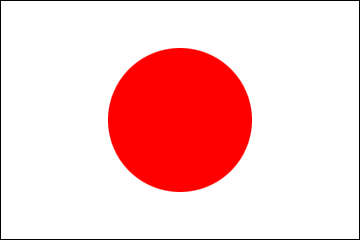第71回UNHCR執行委員会(議題3:一般討論)における岡庭健大使によるステートメント(令和2年10月7日)
令和2年10月9日
Statement by Ambassador OKANIWA Ken,
Permanent Mission of Japan in Geneva
Excellencies, Ladies and Gentlemen,
At the outset, Japan would like to pay tribute to the staff of UNHCR for their dedicated work, conducted under severe and challenging conditions that were greatly aggravated by the pandemic. We also highly appreciate the strong leadership provided by the High Commissioner. Japan further expresses its deepest condolences for the loss of the staff due to COVID-19.
In 2020, we are experiencing unprecedented crises caused by COVID-19 on a global scale. In particular, the difficult situation of persons of concern who have been severely affected by the pandemic requires attention, not only in terms of their health but also from the socio-economic standpoint.
At the Global Refugee Forum in December 2019, we reaffirmed the increasing significance of solidarity and burden- and responsibility-sharing, which are the core principles of the Global Compact on Refugees (GCR). A few months later, the world was thrown into turmoil by COVID-19. Even under the current circumstances, the GCR has demonstrated its relevance as we respond to the pandemic. The host countries have generously included refugees in their national response plans, and the donor countries promptly provided financial support. In some respects, despite the increasing difficulties, COVID-19 may have accelerated the implementation of the GCR.
In response to the pandemic, life-saving support such as health care must be prioritized. We have to give consideration to the needs of refugees when the vaccines are available. At the same time, we must pay more attention to the increasing need to support the livelihoods of refugees who have already been living in vulnerable situations and are more susceptible to socio-economic impacts. In this connection, we have to address the growing needs of the host countries that are facing dire economic situation.
Mr. Chairman,
We have to simultaneously address both the pandemic and the existing humanitarian crises. Since March this year, in addition to its response to COVID-19, Japan has provided emergency assistance for the operations in Syria, the Sahel region, the neighboring countries of Venezuela, and Lebanon. As a member of the Core Group of the SSAR Support Platform, Japan is committed to providing support to find solutions to the Afghan refugee situation. We will continue to fulfill our international humanitarian responsibilities in partnership with UNHCR.
Mr. Chairman,
The “Humanitarian-Development-Peace Nexus” is an effective approach to respond to the protracted refugee situations and address the root causes of forced displacement. In this connection, we welcome UNHCR’s recent efforts to strengthen a partnership with the World Bank, IMF and the regional development banks. Japan has long advocated the values of the nexus approach in response to refugee situations for decades. We also translated this concept into specific projects in several host countries thereby contributing to durable solutions. Japan will continue to implement the nexus approach in close cooperation with UNHCR and development agencies.
Mr. Chairman,
Japan welcomes the steady progress of the regionalization and decentralization process. We encourage UNHCR to implement the recommendations by the Board of Auditors to clarify the roles and responsibilities at each level. We also request UNHCR to share the evaluation of the process.
Japan places great emphasis on risk management. In this regard, Japan welcomes the integration of risk management into the results-based management (RMB) approach. We encourage UNHCR to improve its risk maturity not only internally but also in its work with implementing partners.
Japan appreciates UNHCR’s efforts to increase diversity and inclusion in the workforce. It is especially admirable that UNHCR is close to reaching gender parity for its international workforce. We encourage UNHCR to continue its efforts to foster an enabling environment to increase diversity and inclusion.
